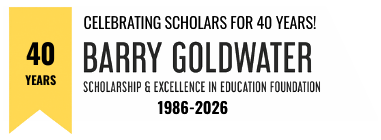Mark (Goldwater Scholar 2004), Chris (Goldwater Scholar 2009), and Michael Turlington (Goldwater Honorable Mention 2015) spent their early years sharing a bedroom as they grew up on their family’s tomato farm in western North Carolina. Before going to sleep at night, they loved talking about sports and telling jokes through the wall with their three sisters who shared the adjacent bedroom. While the Turlington brothers no longer share a bedroom, they now share a new common interest—chemistry. This interest began to develop in 2002, when the oldest brother, Mark, began studying chemistry at Furman University. Drawn to the chemistry department by the dynamic professors and exciting research, Mark was unaware at the time that he and his brothers would be forever shaped by Furman chemistry and the Goldwater Scholarship.
During the summer of 2003, Mark began working under the mentorship of Dr. Moses Lee, synthesizing distamycin related polyamides and studying their DNA minor groove binding properties for use as anticancer agents. Having grown up on the farm, the chance to work in a medicinal chemistry lab felt like an unbelievable opportunity. Mark was hooked on research and in 2004 he won the Goldwater Scholarship as a sophomore. He went on to be a co-author on four papers during his time at Furman. While earning his Ph.D. in organic chemistry at the University of Virginia under Dr. Lin Pu and completing his postdoctoral fellowship in medicinal chemistry in Dr. Craig Lindsley’s lab at Vanderbilt, he added another 23 publications. Mark now leads an organic and medicinal chemistry research group of his own at Berry College. In his first four years he has already mentored 19 undergraduate research students and published three research papers in synthetic methodology. In addition, his lab is working on a Cystic Fibrosis medicinal chemistry project that is nearing publication. Mark credits the Furman chemistry department and the Goldwater Scholarship as being the inspirations for his dedication to mentoring undergraduates in research. Little did he know they would also have a big impact on his brothers.
The Furman Chemistry department had been an outstanding home for Mark, and thus it seemed natural for Chris to begin studying chemistry at Furman in 2006. “I actually worked with Mark in his Furman lab one summer as a high school student. I always wanted to be like him,” Chris commented. Chris quickly began research after arriving at Furman as a freshman. Working in the lab of Dr. Paul Wagenknecht on energy transfer experiments with chromium complexes¬¬¬¬, Chris won the Goldwater Scholarship in 2009. For Chris, the Goldwater Scholarship was especially important in setting the stage for future awards. He went on to win an NSF graduate research fellowship at the University of North Carolina, Chapel Hill, where he earned his Ph.D. in inorganic chemistry under the mentorship of Dr. Joseph Templeton and Dr. Maurice Brookhart. He then earned an NIH postdoctoral fellowship under Dr. Robert Waymouth at Stanford University. In the fall of 2017 Chris launched his independent career at Hope College where he is starting his own inorganic research group. In his first year at Hope he has already won funding from the American Chemical Society Petroleum Research Fund.
Michael couldn’t escape the allure of chemistry or Furman and so began his tenure at the Furman chemistry department in 2012. Working for Dr. Wagenknecht, Michael’s rapid progress in his research of bimetallic charge transfer complexes spearheaded a new focus for the lab. Three summers and a school year of research resulted in a first author paper in Inorganic Chemistry in 2016. Michael earned a Goldwater Honorable Mention in 2015 and the Beckmann Scholarship in 2014. As a Beckman Scholar, Michael presented his research in Krakow, Poland in 2015 at the International Symposium on the Photophysics and Photochemistry of Coordination Compounds. He went on to earn an NSF graduate research fellowship in 2016 and is in his second year of graduate school at UNC Chapel Hill. Working under Dr. Gerald Meyer, he has already wrapped up two projects that are submitted for publication.
The Furman Chemistry department and the Goldwater Scholarship left lasting marks on the Turlington brothers, catalyzing the beginning of three successful research careers in chemistry. In total the Turlington brothers have engaged in research spanning asymmetric synthesis, total synthesis, transition metal water oxidation, charge transfer in dye sensitized solar cells, solar energy conversion, and medicinal chemistry projects in cancer, schizophrenia, cystic fibrosis, and polymers for mRNA delivery. As a group they’ve earned NSF and NIH fellowships, ACS grants, and have published nearly 40 papers so far. Most importantly for the Turlington brothers, they hope to lead vibrant research groups of their own that inspire the next generation of chemists. Not bad for a bunch of farm boys from Western North Carolina!

